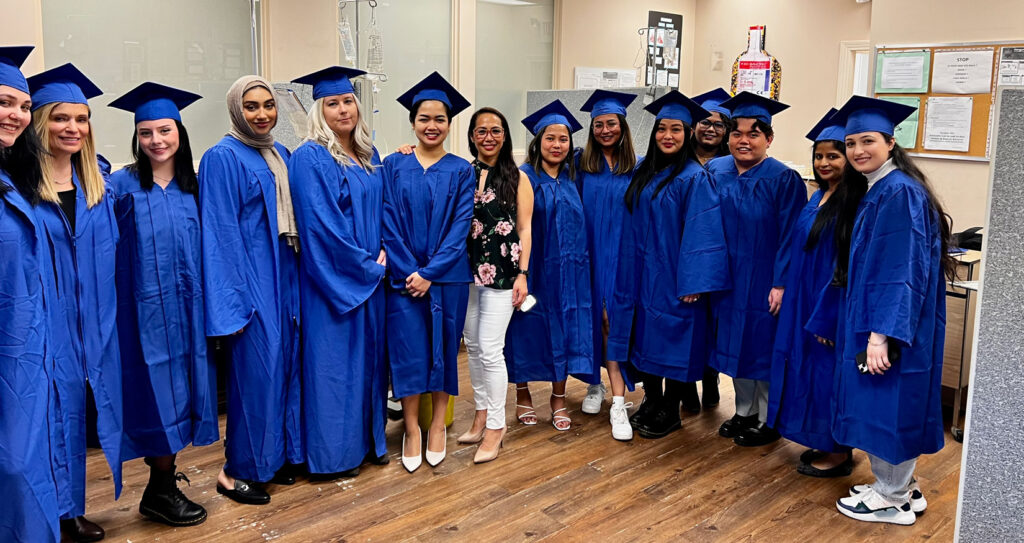
Are you interested in a career in the medical field but aren’t sure where to start? Becoming a medical laboratory assistant (MLA) can be a rewarding and fulfilling career choice. As an integral part of the healthcare system, medical laboratory assistants play a crucial role in the diagnosis and treatment of patients. In this blog, we will explore the pathway to becoming a medical laboratory assistant, the key responsibilities of the role, and the importance of MLAs in healthcare. We will also delve into the academic requirements, skills, and aptitudes needed for success in the field, and the career prospects and opportunities available to medical laboratory assistants. So, let’s get started on your roadmap to becoming a medical laboratory assistant!
Understanding the Role of Medical Laboratory Assistant
Before we delve into the details of the medical laboratory assistant program, let’s first understand the role of a medical laboratory assistant. Medical laboratory assistants work in medical laboratories, assisting healthcare providers in the process of diagnosing and treating patients. They work with biological samples, such as urine and blood, and conduct various tests to assess a patient’s health. MLAs are responsible for processing specimens, conducting phlebotomy, and ensuring the accurate labeling, handling, and storage of samples. In addition, communication skills are crucial for medical laboratory assistants, as they interact with healthcare providers and patients on a regular basis.
Key Responsibilities of a Medical Laboratory Assistant
As a medical laboratory assistant, your key responsibilities include processing specimens, conducting phlebotomy, assisting healthcare providers, performing electrocardiograms (ECGs), and maintaining accurate health information and records.
The Importance of Medical Laboratory Assistants in Healthcare
In healthcare, medical laboratory assistants (MLAs) play a critical role in ensuring accurate diagnostics and patient care. Their support helps healthcare providers deliver precise diagnoses, contributing to the efficiency of the healthcare system. MLAs are responsible for maintaining the integrity of biological samples, which is crucial for reliable test results. Accreditation Canada and the Canadian Society for Medical Laboratory Science have established competency profiles for MLAs, and MLA programs in British Columbia, Alberta, Saskatchewan, and Manitoba, including Vancouver and BC, ensure that MLAs are well-trained to meet these standards.
The Pathway to Becoming a Medical Laboratory Assistant
Accreditation Canada and the Canadian Society for Medical Laboratory Science play vital roles in regulating the profession. MLA programs in British Columbia, Alberta, Saskatchewan, and Manitoba adhere to the MLA Competency Profile. The School of Health Sciences in Vancouver, BC, is renowned for its MLA program, providing comprehensive training. WHMIS training is essential for a Medical Laboratory Assistant’s safety awareness.
Academic Requirements of a Medical Laboratory Assistant Program
When considering a career as a Medical Laboratory Assistant, it’s important to research the specific academic requirements of the program you are interested in. Medical Laboratory Assistant program at West Coast College, for example, admission requirements include a high school diploma, G.E.D., or mature student status. Prospective students must also complete a pre-admission application and interview, as well as demonstrate proficiency in English and Math through an assessment. Other requirements include proof of a negative TB test or chest x-ray, typing at a speed of 40 wpm, and a satisfactory completion of a Criminal Record Search. It’s important to note that requirements may differ from one educational institution to another, so be sure to thoroughly research the specific requirements of the program you are considering.
Skills and Aptitudes Needed for Success in the MLA Field
In the field of medical laboratory assistance, strong communication skills are essential for success. Practical proficiency in processing specimens and providing patient care is also crucial. Students benefit from clinical practicum experience during their medical laboratory assistant program, which helps them develop the necessary skills. Additionally, teamwork, time management, and patient care skills are emphasized to prepare graduates for the demands of the profession. Furthermore, graduates should be well-equipped to work in health information, ensuring they are valuable assets in the healthcare industry.
Delving into the Medical Laboratory Assistant Program
The Canadian Society for Medical Laboratory assistants accredits MLA programs in British Columbia, including Vancouver. The MLA Competency Profile and the School of Health ensure MLA graduates meet accreditation standards. Programs in Alberta, Saskatchewan, and Manitoba also adhere to ACCC directives. WHMIS guidelines are integrated into the curriculum.
Overview of Course Structure
The program delves into medical laboratory science, encompassing processing specimens, phlebotomy, and anatomy. Additionally, it covers electrocardiograms, microbiology, and health information. Practical skills and competency for clinical practicum are emphasized, preparing students for job opportunities in healthcare. Accreditation Canada and the Canadian Society for Medical Laboratory Assistants ensure that the program meets the MLA Competency Profile. Graduates find opportunities in various provinces like British Columbia, Alberta, Saskatchewan, and Manitoba. The School of Health Sciences, located in Vancouver, BC, is a prominent institution offering this program.
Specialized Intakes and Schedules
When pursuing a career as a medical laboratory assistant, it’s essential to consider specialized intakes and schedules offered by the program. These may include multiple intakes throughout the academic year, catering to learners balancing work or other commitments. The program aims to provide flexibility for students’ enrollment needs, enabling them to begin their education at convenient times. Additionally, students should inquire about practicum availability and placement to make informed decisions about their educational journey. This ensures that the program aligns with their individual requirements and timeline.
Accreditation and Certification of the Program
Accreditation and certification are crucial for a Medical Laboratory Assistant (MLA) program. The program should be accredited by the Canadian Society for Medical Laboratory Science (CSMLS) and meet the standards set by Accreditation Canada. Additionally, the MLA program must align with the MLA competency profile. Furthermore, specific provinces like British Columbia (BC), Alberta, Saskatchewan, and Manitoba have their own accreditation requirements. It’s essential for schools of health, particularly in Vancouver, BC, to adhere to these standards while also incorporating workplace hazardous materials information system (WHMIS) training.
Importance of Program Accreditation
Program accreditation is crucial as it ensures the quality and standards of education for medical lab assistants. It enhances the credibility of the program and meets the requirements of certification bodies. Moreover, accredited programs enable students to access financial aid, transfer credits, and are a prerequisite for certification. This accreditation plays a vital role in ensuring that medical laboratory assistant programs across Canada, including British Columbia, Alberta, Saskatchewan, and Manitoba, adhere to the MLA Competency Profile and meet the standards set by Accreditation Canada and the Canadian Society for Medical Laboratory Science.
Certifications Earned Upon Completion
Upon program completion, students receive a Medical Laboratory Assistant certificate signifying their mastery of the MLA competency profile. The curriculum adequately prepares them for the CSMLS certification exam, unlocking diverse job opportunities in Canada. Following certification, graduates become eligible to work in medical laboratories across British Columbia, Alberta, Saskatchewan, Manitoba, and beyond. This accreditation by the Canadian Society for Medical Laboratory Science ensures that students are equipped with the necessary skills to excel in their careers.
Career Prospects After Completing the Medical Laboratory Assistant Program
Upon completion of the MLA program, graduates are well-positioned for a range of career opportunities. The Canadian Society for Medical Laboratory Science provides accreditation to MLAs, ensuring their qualification to work in various provinces such as British Columbia, Alberta, Saskatchewan, and Manitoba. Graduates can seek employment in hospitals, private laboratories, research facilities, and diagnostic clinics. With the MLA competency profile, they are equipped to handle diverse responsibilities in the field, adhering to safety standards such as WHMIS. Vancouver, BC, offers a hub for employment in this profession, providing ample opportunities for growth and development.
Job Opportunities within the Healthcare Sector
Upon completing an MLA program, graduates can explore diverse job opportunities within the healthcare sector. They may secure positions in hospitals, clinics, and medical laboratory settings, both locally and globally. Their role involves processing specimens, carrying out phlebotomy, and conducting electrocardiograms. Graduates handle a variety of biological samples such as urine and microbiology specimens. There are also opportunities for them to provide patient care and manage health information. Accreditation Canada and the Canadian Society for Medical Laboratory Science play crucial roles in setting the standard for MLA competency profiles in provinces like British Columbia, Alberta, Saskatchewan, and Manitoba, ensuring adherence to health and safety regulations like WHMIS.
Salary Expectations and Growth Prospects
Medical laboratory assistants benefit from competitive salary expectations, with growth opportunities in a progressive healthcare job market. Job demand continues to increase, ensuring both job security and career advancement. The salary expectations vary based on location, job experience, and role. Graduates are well-equipped to excel in their careers, supported by the evolving job market. This ensures promising career growth for medical laboratory assistants in regions across Canada, including British Columbia, Alberta, Saskatchewan, Manitoba, and beyond. Accreditation Canada and the MLA competency profile are integral to this career trajectory.
Other Relevant Programs for Aspiring Medical Laboratory Assistants
When pursuing a career as a Medical Laboratory Assistant, it’s essential to consider other relevant programs. Accreditation Canada has defined the competency profile for MLAs, and several institutions offer programs aligned with this. In British Columbia, aspiring MLAs can explore programs at the School of Health Sciences in Vancouver or other accredited institutions in Alberta, Saskatchewan, and Manitoba. Furthermore, understanding WHMIS guidelines is crucial, and aspiring MLAs can benefit from programs that incorporate this aspect into their curriculum.
Complementary Courses and Programs
Embarking on the journey to become a Medical Laboratory Assistant involves acquiring a diverse skill set through various complementary courses and programs. Phlebotomy courses train individuals in the art of drawing blood and handling specimens, while ECG courses provide in-depth knowledge of performing electrocardiograms. Furthermore, health information management programs equip students with the essential skills for managing health data effectively. Additionally, a medical laboratory science program offers comprehensive training in laboratory procedures, preparing individuals for the demands of the profession. Lastly, healthcare administration courses lay the foundation for administrative roles within healthcare settings, thus enhancing the overall competency of medical lab assistants.
Benefits of Diversifying Your Skill Set
Diversifying your skill set as a medical laboratory assistant enhances your employability and job opportunities within the Canadian healthcare industry. It increases job flexibility and opens doors to various job roles, valued by employers across British Columbia, Alberta, Saskatchewan, and Manitoba. Accreditation Canada recognizes the importance of diversification and the MLA competency profile in promoting career growth and advancement. By taking advantage of the opportunities offered by the School of Health in Vancouver, BC, you can position yourself for success in this dynamic field.
The Costs of Pursuing a Medical Laboratory Assistant Program
Becoming a Medical Laboratory Assistant entails certain costs, including tuition, textbooks, and supplies. The program may also involve additional expenses such as uniforms, immunizations, and criminal record checks. Moreover, students may need to consider other financial aspects like living expenses and transportation. It’s important to note that financial aid options are available, including scholarships and bursaries offered by the Canadian Society for Medical Laboratory Assistants and MLA programs in provinces like British Columbia, Alberta, Saskatchewan, and Manitoba.
Tuition and Other Related Fees
When pursuing a career as a Medical Laboratory Assistant, it’s important to consider the costs associated with the necessary education and training. Tuition fees are typically based on residency and program length, with additional fees for international students, including health care coverage. Moreover, there may be extra expenses for practicum placement, certification, and accreditation. To budget effectively, students should also account for miscellaneous costs such as textbooks and materials. It’s crucial to note that tuition fees are subject to change, requiring students to plan for potential fee adjustments.
Options for Financial Aid
When pursuing a career as a medical laboratory assistant, it’s essential to consider the various financial aid options available. These options can include scholarships, grants, and loans. Many accredited medical laboratory assistant programs in Canadian provinces like British Columbia, Alberta, Saskatchewan, and Manitoba offer financial aid assistance to eligible students. Additionally, students can explore external financial aid opportunities and inquire about work-study programs offered by MLA programs in Vancouver, BC. It’s crucial for aspiring medical lab assistants to gather information about financial aid availability and eligibility requirements before enrolling.
How Does a Medical Laboratory Assistant Program Open Doors in Healthcare?
A medical laboratory assistant program equips students with practical skills for healthcare settings, preparing them for job opportunities in medical laboratories, hospitals, and clinics. The program includes training on specimen processing and effective communication in healthcare settings, as well as hands-on experience through clinical practicum placements.
Can a Medical Laboratory Assistant Program Lead to Other Careers in Healthcare?
Medical laboratory assistant program graduates have the opportunity to explore other career paths in healthcare. They can further their education in health information or related fields, and the skills they obtain can open doors to roles in patient care. This program serves as a foundation for potential advancement into medical laboratory science or related disciplines, providing various opportunities to work with healthcare providers. The skills and experience gained can lead to a variety of opportunities in different healthcare settings.
Conclusion
In conclusion, becoming a Medical Laboratory Assistant opens doors to a fulfilling career in healthcare. The role of an MLA is critical in supporting healthcare professionals and ensuring accurate diagnosis and treatment plans. By completing a comprehensive MLA program, you will gain the necessary knowledge and skills to excel in this field. It is important to meet the academic requirements and develop the necessary aptitudes for success. Additionally, program accreditation and certifications earned upon completion will enhance your credibility and employability. The healthcare sector offers ample job opportunities with competitive salaries and growth prospects. Diversifying your skill set through complementary courses can further boost your career prospects. While pursuing an MLA program requires financial investment, there are options for financial aid available. Overall, a career as a Medical Laboratory Assistant is a rewarding path that contributes to the well-being of patients and the advancement of healthcare.




More Stories
The Ultimate Guide to Renewing ICBC Car Insurance Online
How to Cancel Your Yellow Pages Advertising Contract: A Step-by-Step Guide
Winter Road Safety Tips for Vancouver Drivers